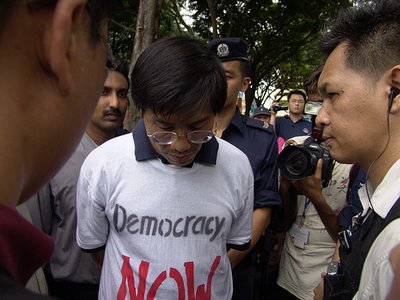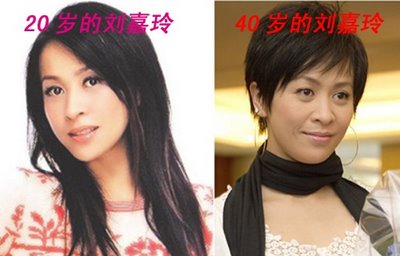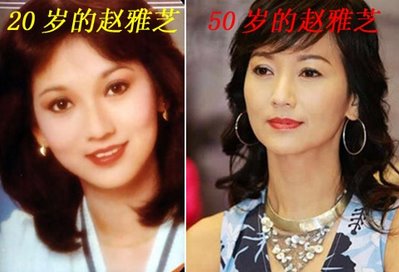I hope you're right
Lowest 20%'s avg household income: $1,279
Lowest 20%'s avg household expenditure: $1,778
Lowest 20%'s avg public transport exp.: $101
2nd Quintile's avg household income: $2,651
2nd Quintile's avg household exp.: $2,652
2nd Quintile's avg public transport exp.: $145
That's from the Report of the Committee on the (public transport) Fare Review Mechanism, Feb 2005 (Annex E, Page 47, Table 1 (income) and Table 4 (expenditure)). The report cited as its source: "Household Expenditure Survey (HES), Department of Statistics (DOS)".
That's very "interesting" because DOS' 2003 HES (table 25, page 123 (income) and table 14A, page 100 (expenditure) reads:
Lowest 20%'s avg household income: $795
Lowest 20%'s avg household exp.: $1,454.7
Lowest 20%'s avg public transport exp.:$82.3
2nd Quintile's avg household income: $2,059
2nd Quintile's avg household exp.: $2,364.6
2nd Quintile's avg public transport exp.:$129.4
(Note: In Chapter 1, page 2, a diff set of expenditure figures is given due to the exclusion of imputed rentals, but that does not reduce the "interesting"-ness of the 1st set of data):
Anyway, who are we, mere Human Batteries, to question such discrepancies? It's the Matrix, right? Anything is possible in the Matrix. That's why it's called the Matrix! It's not called the Matrix for no reason, you know? Both sets of figures, without further qualification (none was stated in the report), must somehow be both correct concurrently. And here's why:
The Law of Trichotomy ("if 1 less than 2, 1 cannot be equal 2") works only in the real mathematical world. It does not apply to the virtual Matrix world! In the Matrix, it's up to the Matrix Master (MM) to define the law, as he pleases. If MM so chooses to program the Matrix with this MM's Law " '1 less than 2', and '1 equals 2' shall both be true", that's how things shall be in the Matrix. To hell with reality and the rest of the world! We, in the Matrix have to do things differently, because our circumstances are different, we are unique, blah blah blah, remember?
In fact, MM can even implement a bao gao liow law: "Whatever I say 'right', shall be right. So if I say 'both are right', both are right! And if I say, 'get it over with and move on', you shall move on or be struck by lighting". That should suffice for the Matrix to function optimally without any "hanging" - Machines won't revolt since they are well-fed, and Batteries have no business questioning how the Matrix is run. The job of a Human Battery is one and only one: to serve as the energy and food source... (errant Human Batteries who have forgotten their duties should review my profile and emulate)!
Now I hear you ask: can such a Matrix world, with its own unique MM's laws, compete successfully in the real world which operates on another set of laws? Absolutely! No problem at all. To compete, MM will need more energy output (to compensate for not following the real world's laws, plus nowadays, more and more batteries have left the matrix, so the remaining ones have to work harder...). Well, that's simple. Human Batteries are quite obedient. Just demand more electric current, and they will comply. In fact, not only will they comply, they will even fight, on behalf of the Machines, the very gang who try to remove them from the Matrix. They will resist all efforts to be saved! That's the really shiok part. So what is there to worry. The future of the Matrix is secure.
Meanwhile, in parliament, March 2005:
MP Ong Kian Min: "I wish to congratulate the Minister and all his staff at the Ministry of Transport and its related agencies for their commendable efforts in building and maintaining our world-class transport systems in air, land and sea... It is therefore fitting that Minister Yeo Cheow Tong is a joint winner of the 2004 Minister of the Year award, given by the Centre for Asia Pacific Aviation for the national government minister contributing most to the progress of aviation in the region. We would like to place on parliamentary records our heartiest congratulations to Minister Yeo".
Minister of the Year Yeo Cheow Tong: "let me thank Mr Ong Kian Min and his committee members for the recommendations that they have submitted on how to improve the fare review mechanism... The Committee, in its proposed fare review mechanism, has done a commendable job in taking care of both commuters and the viability of the public transport operators (PTOs)... I am pleased to announce that the Committee's recommendations have been accepted in full".
Yeah, everyone is commendable! You scratch my back and I 'll scratch yours. Congratulations! Thank you! Good Job! Well done! Keep it up!
Oh, a sample of the rest of the "commendable job" is below:
Report of the Committee on the (public transport) Fare Review Mechanism
3rd Quintile's avg household income: $4,048
3rd Quintile's avg household exp.: $3,351
3rd Quintile's avg public transport exp.: $184
4th Quintile's avg household income: $6,070
4th Quintile's avg household exp.: $4,530
4th Quintile's avg public transport exp.: $192
Highest 20%'s avg household income: $14,244
Highest 20%'s avg household exp.: $7,351
Highest 20%'s avg public transport exp.: $179
2003 Household Expenditure Survey, Department of Statistics
3rd Quintile's avg household income: $3,379
3rd Quintile's avg household exp.: $3,171.9
3rd Quintile's avg public transport exp.: $175.5
4th Quintile's avg household income: $5,309
4th Quintile's avg household exp.: $4,326.8
4th Quintile's avg public transport exp.: $184.6
Highest 20%'s avg household income: $12,792
Highest 20%'s avg household exp.: $7,100.9
Highest 20%'s avg public transport exp.: $180.7
Trinity: I hope you're right.
Morpheus: You don't have to hope. I know it.
















